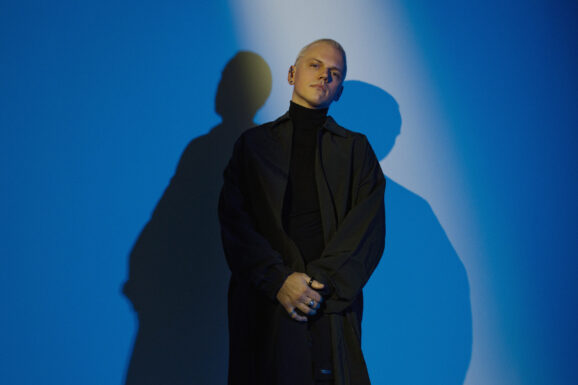[rating=6.00]
With Lord of the Rings, author J.R.R. Tolkien crafted a world and a narrative that forever changed the direction and DNA of the fantasy genre. It is the ur-modern fantasy, establishing and standardizing the tropes and characters that would come to populate the whole of the genre. Dwarves, elves, halflings, rangers, wizards, kings. What we today consider mainstays of particular import were, in his days, novel and new. It is, undoubtedly, the single most important work of fantasy ever written.
The modern success of the story, due in no small part to the films of Peter Jackson, has led to a renewed interest in the life of its creator. Tolkien’s rise from orphan to soldier to professor of philology to standard bearer of an entire genre of fiction is something of a marvel. His is a story that tickles the fancy of nerds across the globe, laying the groundwork for how relentless obsession with the nerdiest of topics can lead to immortality. The halls of academia are littered by tomes that examine his life and its connections to his works and world that he created.
It was, then, only a matter of time before Tolkien got the biopic treatment. There’s one tiny but glaring problem with this, however. Fascinating though Tolkien’s life might be for academic purposes, we’re still talking about a story that is, essentially, one man’s journey to becoming a philologist. No matter how we dress it up from there, it’s still just that. It is, in a word, boring.
That’s the difficulty Tolkien tries to overcome, but it’s as insurmountable as the Black Gate of Mordor. Add to that the shortcomings of the biopic genre—which are rarely overcome by anyone and make the necessary frameworks too predictable for true transcendence—and some bizarre structural choices with the script, and you’ve got a film that is, unfortunately, too easy to ignore.
Tolkien intersperses stories from the author’s life as a young orphan (here played by Harry Gilby) and young man (played by Nicholas Hoult) with a story of life in the trenches of World War I, bouncing between a coming of age story about a young man’s interest in language with the tale of a soldier’s search for his missing friend. Screenwriters David Gleeson and Stephen Beresford, along with director Dome Karukoski, do their best to try and set the stage for how Tolkien would come to write Lord of the Rings, with varying success.
Much of the problem stems from the fact that Tolkien’s time in the trenches is reduced to little more than the fever dreams of man who has spent too much time at war and is suffering from trench fever. Here, the parallels to Lord of the Rings are the most direct. Tolkien is assisted in his quest by a young friend and willing servant named Sam (Craig Roberts) who offers support in what might be his darkest hour. As the film continues, the weight of the quest begins to weigh more heavily on Tolkien until he can barely stand. Through it all, we see as his fevered and PTSD suffered mind conjures familiar images of darkness and monstrosities through the fires of war.
Admittedly, the film is at its best in these moments. Karukoski does a wonderful job at drawing the direct parallels between Lord of the Rings and Tolkien’s time in the trenches, and really solidifies the themes of Tolkien’s narrative as a parable regarding both the destructive nature of war and the human capacity to find fellowship and strength amidst dark times. The problem is how little time is spent in these moments, and how reductive it is presented overall.
The rest of the film meanders through predictable biopic beats that does little to capture the imagination. Hoult does his best to keep the whole thing together and, for sure, largely succeeds. As a performer he is capable of bringing the light out of any script and finding depth where none seems to exist. He’s aided by Lily Collins, who, playing his fellow orphan and future wife Edith, also does a marvelous job at bringing to life a script that is, at times, almost laughably standard and predictable.
Hoult and Collins have an undeniable chemistry that almost makes the film’s weaker moments work. A scene set backstage at a performance of a Wagner opera (whose Ring Cycle served as a fairly overt inspiration for Lord of the Rings) would have fallen completely flat in the hands of lesser performers though, between the two of them, it’s almost sweet.
Too often, however, are the faults too glaring to ignore. The Tolkien Estate recently went out of their way to disown the film prior to release, and it’s not difficult to understand why. Of course, by not having rights to his life the use of dramatization is abundant but, even then, dramatization can be and has been utilized far better than it is here. While it’s not a bad film, it’s a terribly flawed one that never matches the heights to which it strives. Fans of Tolkien will certainly find moments to enjoy, if not love, and Hoult and Collins almost make it worth seeing for their performances alone.
In the end though, it’s hard to justify the price of the ticket for what amounts to a by-the-numbers approach to biopics and script that often feels flailing. For home viewing, it might be worth it. As a night out? You’ve got far better options.
Tolkien is now playing in select theaters.











